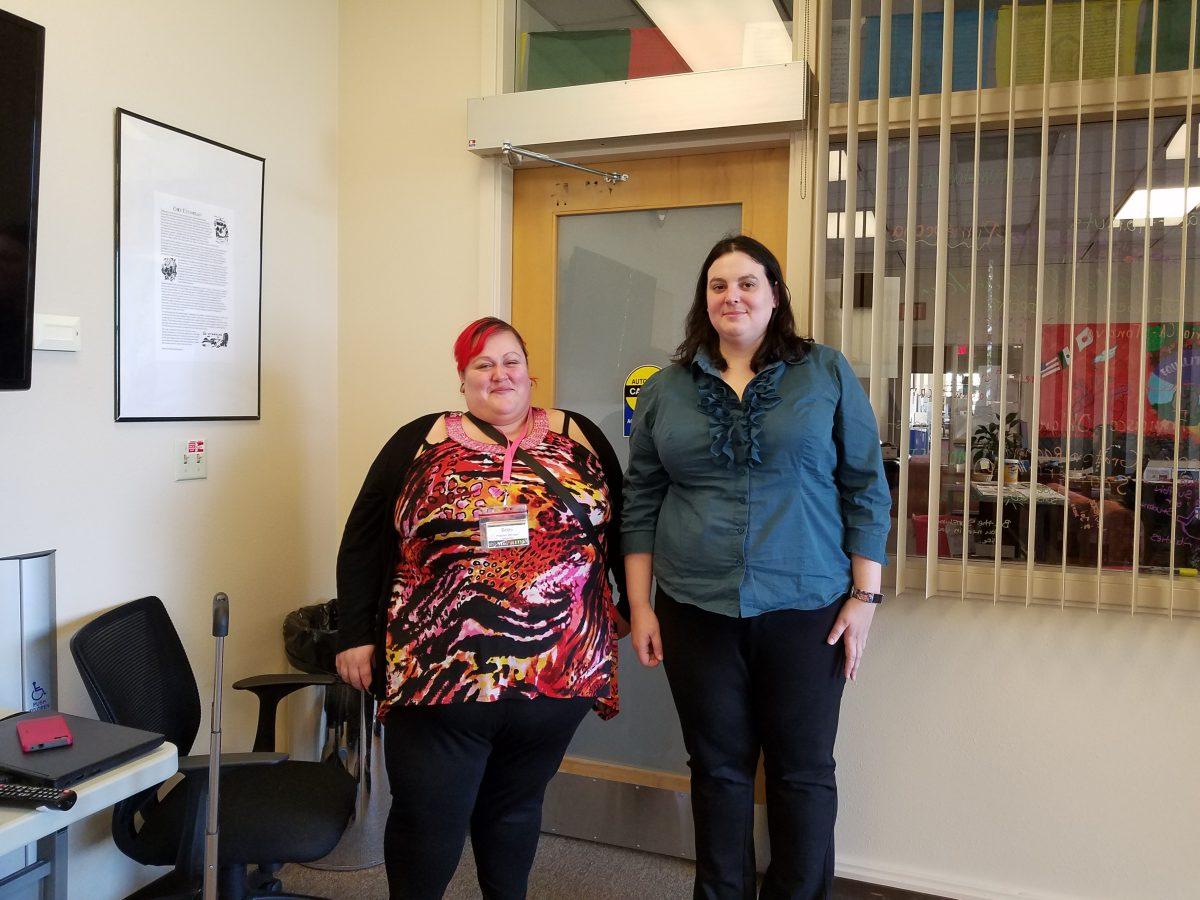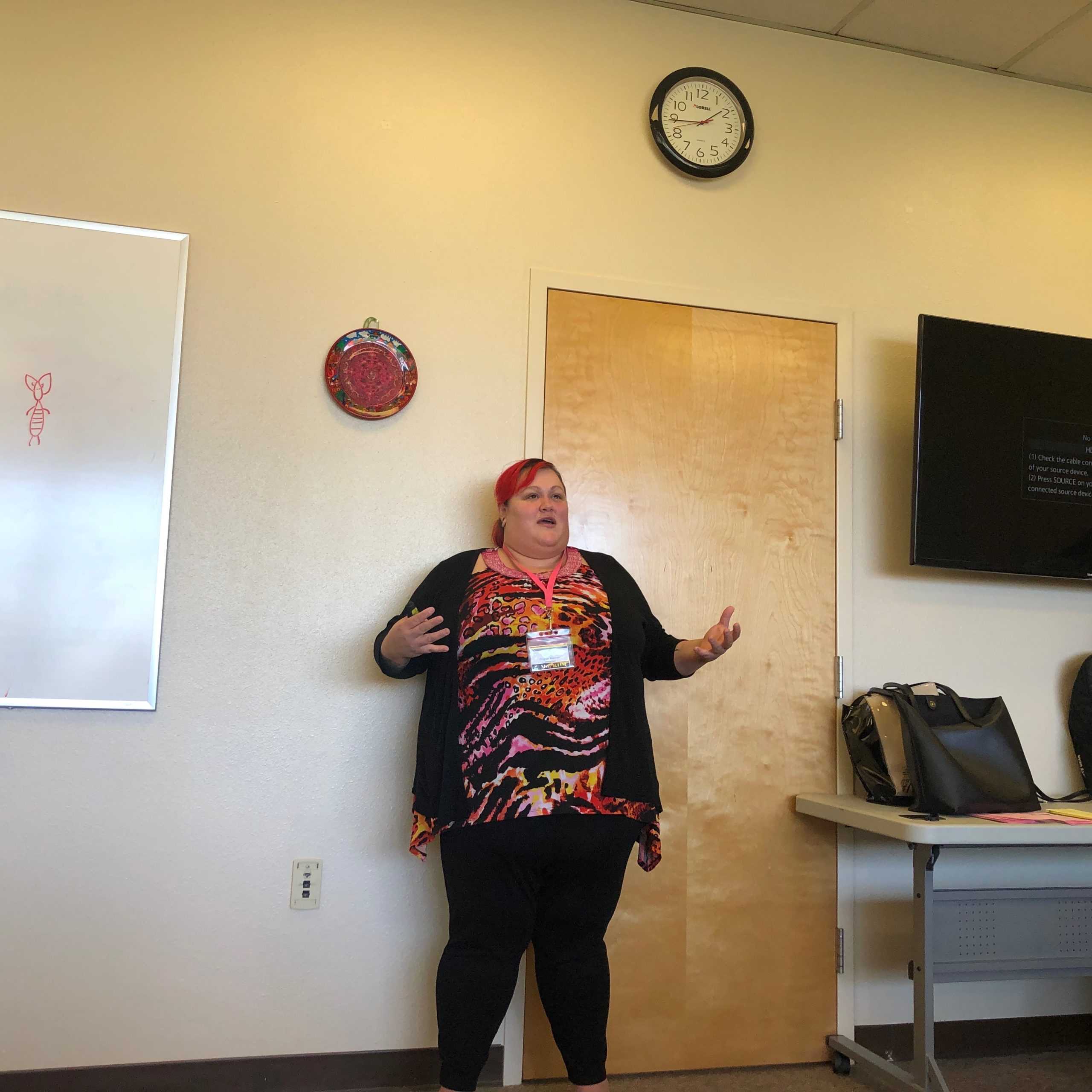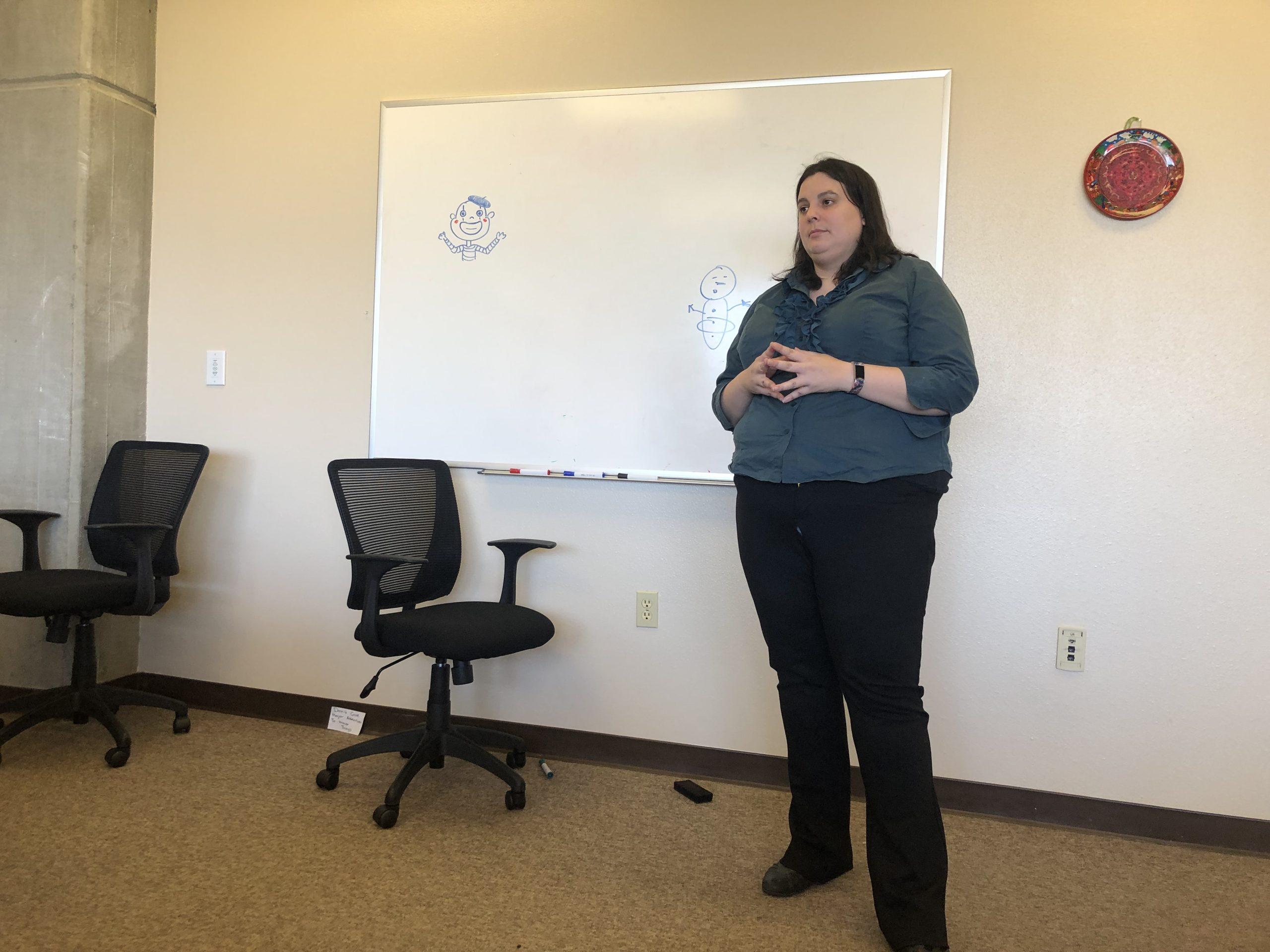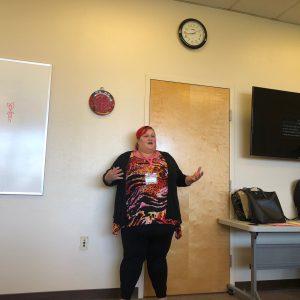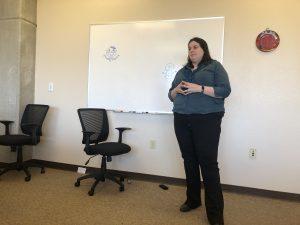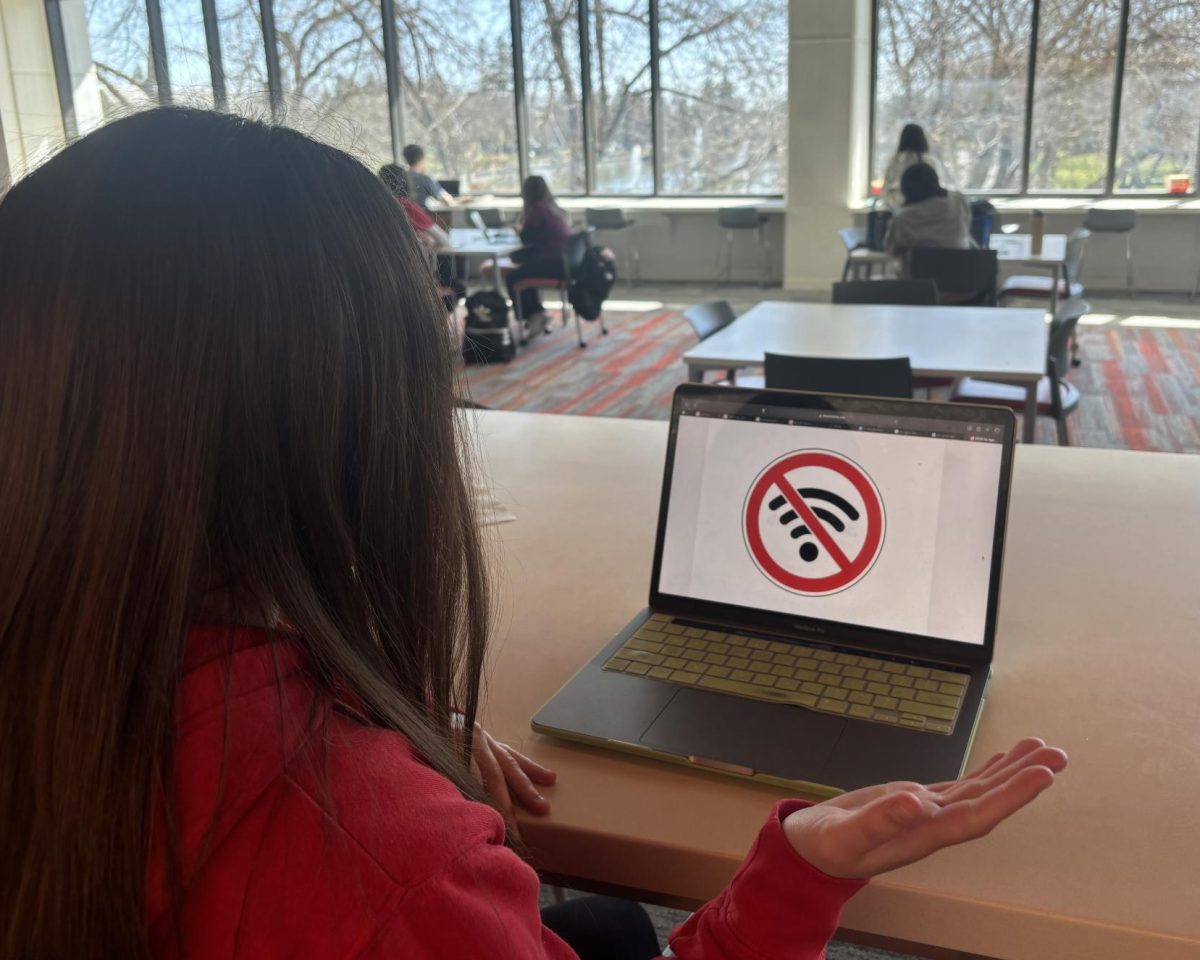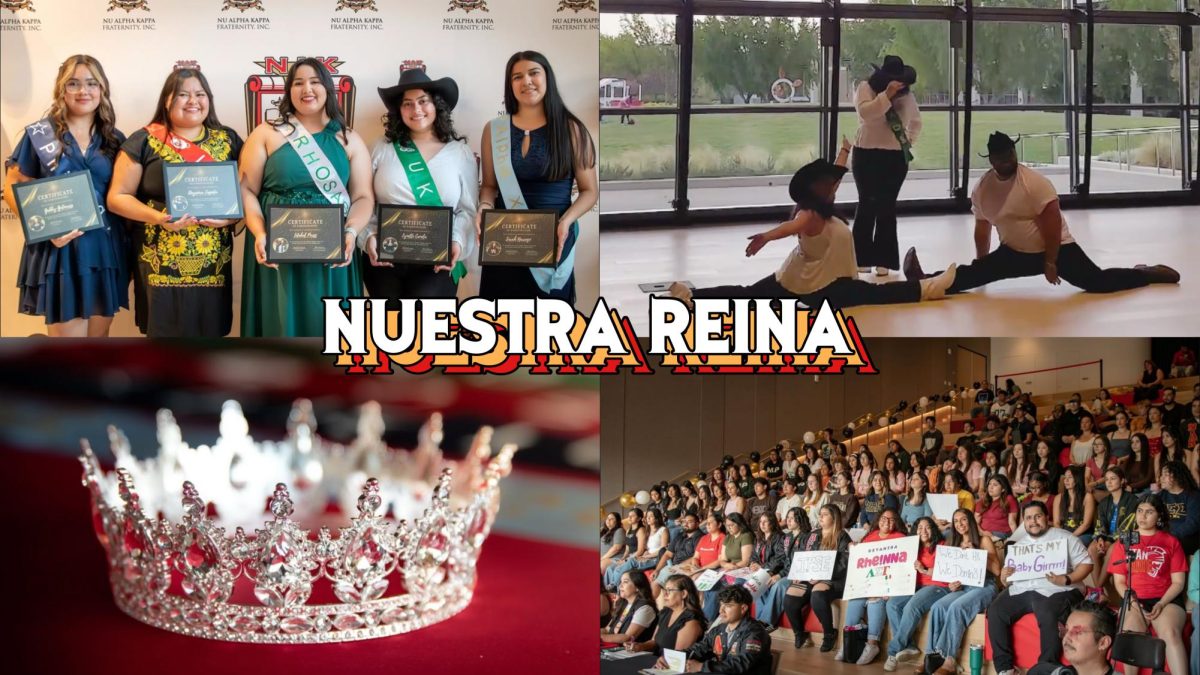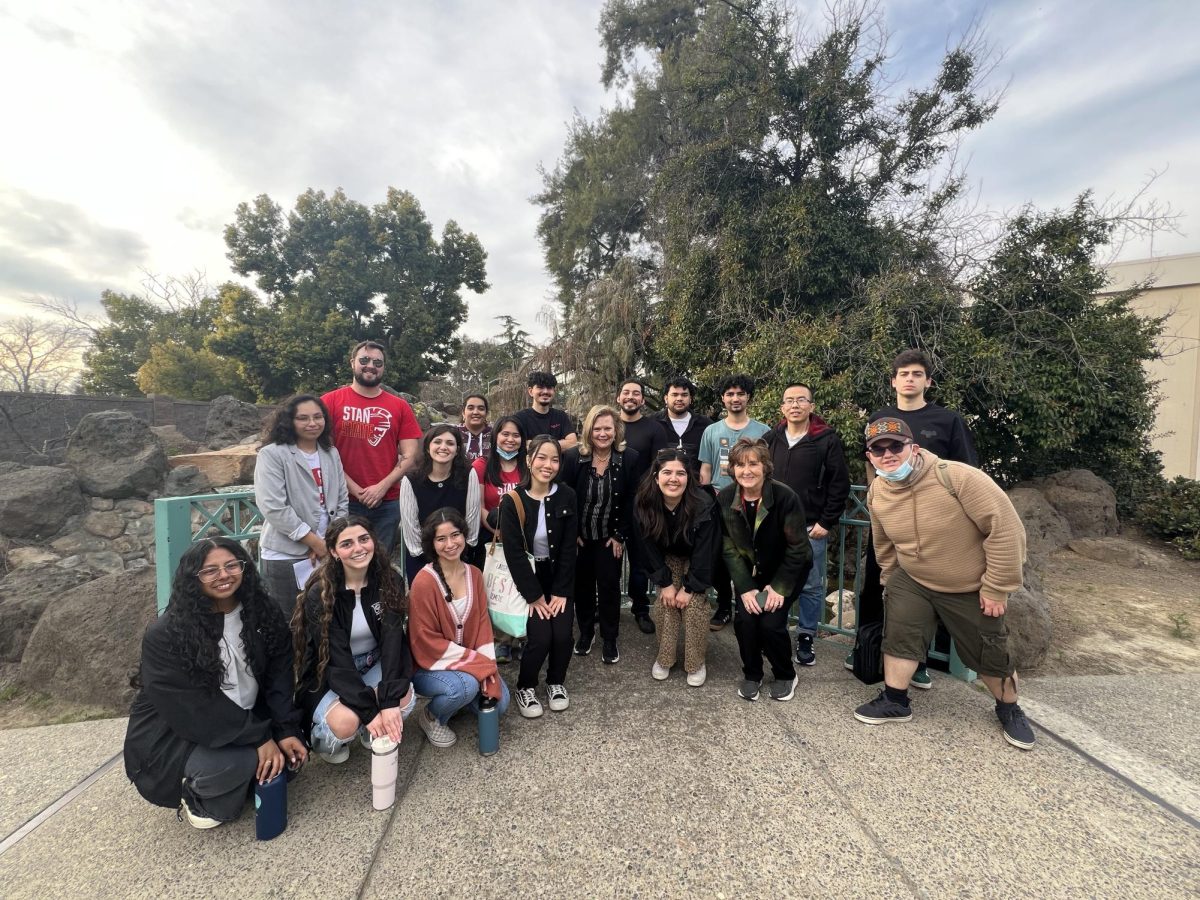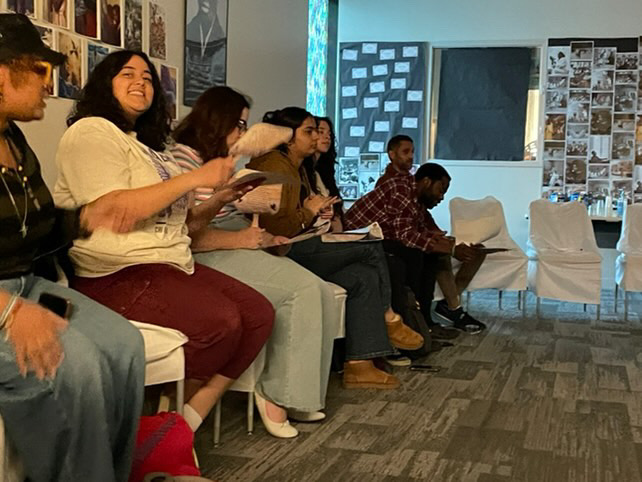The fourth day of the “Students: Know Your Rights!” Conference covered LGBTQ+ rights and was led by Britni Hodge, the program manager at the Central Valley Pride Center (CVPC) and Aurora Thome, an attorney at California Rural Legal Assistance (CRLA).
The two guest speakers spoke on resources for the LGBTQ+ community and gave advice to their allies. Hodge spoke about the different resources given at the CVPC while Thome spoke about legal resources.
Central Valley Pride Center
The center is considered a safe space for the LGBTQ+ community in the Central Valley. The CVPC is a piece of MOPride, which is a non-profit organization.
One of the programs available at the CVPC is Kat’s Closet, which carries gender affirming clothing “if you need clothes that match your gender identity and maybe can’t afford them,” Hodge said. Hodge added that they do take donations and they do take requests on specific clothing items or sizes.
CVPC also partners with a non-profit organization in Oakland called Emphatic, which allowed the center to carry plus size clothing up to 4x.
Some of the other programs Hodge spoke on were Under the Gender Umbrella (UGU), which is a program at the center for transgender or non-binary people, a queer women’s group and a parent’s group for parents who might not be as accepting of individuals from the LGBTQ+ community.
Other programs Hodge mentioned included Simple as ABP, an asexual, bisexual and pansexual group. “Asexual, bisexual and pansexual people in the LGBTQ+ community can feel left out,” Hodge said. This group works to better include them.
CVPC also has a peer outreach and sexual health program, that focuses on the LGBTQ+ community and also goes out and gives presentations on sexual health and sexually transmitted diseases (STDs) to the general population. “It makes it more inclusive,” Hodge said.
Hodge also spoke about the history behind LGBTQ+ organization during the conference event. “A lot of the laws that are there to protect us came out of tragedy,” Hodge said and further elaborated on the Matthew Sheppard case of 1998.
Sheppard was a 21 year old student at the University of Wyoming, who was brutally attacked, tied to a fence and left to die. “This was the first very large publicized case in our country where people really started to look at this and see that this happens every day,” Hodge said.
Marriage Equality is another topic Hodge spoke on. “Its something we still have to be diligent about,” she said on how the right can still be taken away, and how this has happened before with laws.
Hodge also spoke about the laws that the LGBTQ+ community does have as of right now. LGBTQ+ rights to parent, the right to be in a relationship in the workplace, the right for youths to have the proper names and pronouns used in school, LGBTQ+ nondiscrimination rights and transgender rights, fighting against discrimination in employment and the right to occupy housing and public places were just a few that Hodge mentioned during the presentation.
California Rural Legal Assistance
CRLA provides free legal services for low income people. All clients have to be below a certain income since they do get federal funding.
CRLA addresses LGBTQ+ issues in four different areas, they are: housing discrimination, employment discrimination, education discrimination and representation in legal name and gender changes. With these four areas, Thome gave examples on each while adding that when discrimination occurs, it’s usually not as outright but is more about subtle comments.
Housing discrimination is the biggest area they focus on. “It’s not fair for people to not be able to access housing because of their sexual orientation or because of their gender identity,” Thome said.
Thome spoke on the different types of discrimination that can occur regarding gender identity with the federal law. Thome informed students and faculty about California’s state laws that “can add on more protection.”
Thomed added that California has sexual orientation and gender identity laws explicitly listed. Some employment discrimination cases Thome spoke on included cases of firing in the workplace once employers have found out a person’s identity, not using correct pronouns in the workplace and mistreatment of a person’s partner, to name a few.
Thome also spoke about a few cases on education discrimination they have looked at. There have been schools not wanting to use student’s correct pronouns or the correct name they go by. “Even if they haven’t had it legally changed, schools are supposed to do that,” Thome said. Sports teams not wanting students on the team once they have found out their sexual orientation is another case Thome presented.
Legal names and gender changes are a different area CRLA focuses on because legally changing one’s gender and name is a state process and “has changed pretty quickly over the years, and the courts don’t always catch up right away to what they are required to do,” Thome said.
Speaking on all of the cases Thome said, “It can be a long and difficult process, but it’s really important for protecting everyone’s rights in this state.”
How To Be An Ally
The issue of “allies” arose in the conversation as well. Allies are usually supporters of the LGBTQ+ community, they can be straight or heterosexual. Hodge explained that there are usually allies of the LGBTQ+ community that may not know how to be an ally or it may not be appropriate for an ally to attend specific support groups.
Other advice that Thome and Hodge gave was to use your own pronouns so that other people around you may feel comfortable with using their own pronouns. Pronouns can refer to either the speaker or the listener. Some examples of gender neutral pronouns are “they, them and their.” For more information on pronouns you can visit the LGBTQIA Resource Center.
Aleta Mascorro (senior, Theatre Arts and Ethnic Studies) thought the event was a thought provoking, conscience and mindful workshop. “It was impactful,” she said.
Mascorro added that this workshop allowed everyone to see the resources available to people who might benefit from them and how to help out as an ally.
For more information on the CVPC you can visit their website. The CVPC is also putting on an event for World Aids Day on Dec. 1. There will be free HIV testing, light medical care and triage, appointment setting and more.
And for more information on CRLA you can visit their website.
Categories:
“Students: Know Your Rights!” Conference Speakers Talk LGBTQ+ Rights
Kayla Santana
•
November 9, 2018
Britni Hodge (Left) and Aurora Thome (Right) standing together after the fourth day of the conference. (Signal Photo/Kayla Santana)
0
Donate to Signal
Your donation will support the student journalists of California State University, Stanislaus. Your contribution will allow us to purchase equipment and cover our annual website hosting costs.
More to Discover

